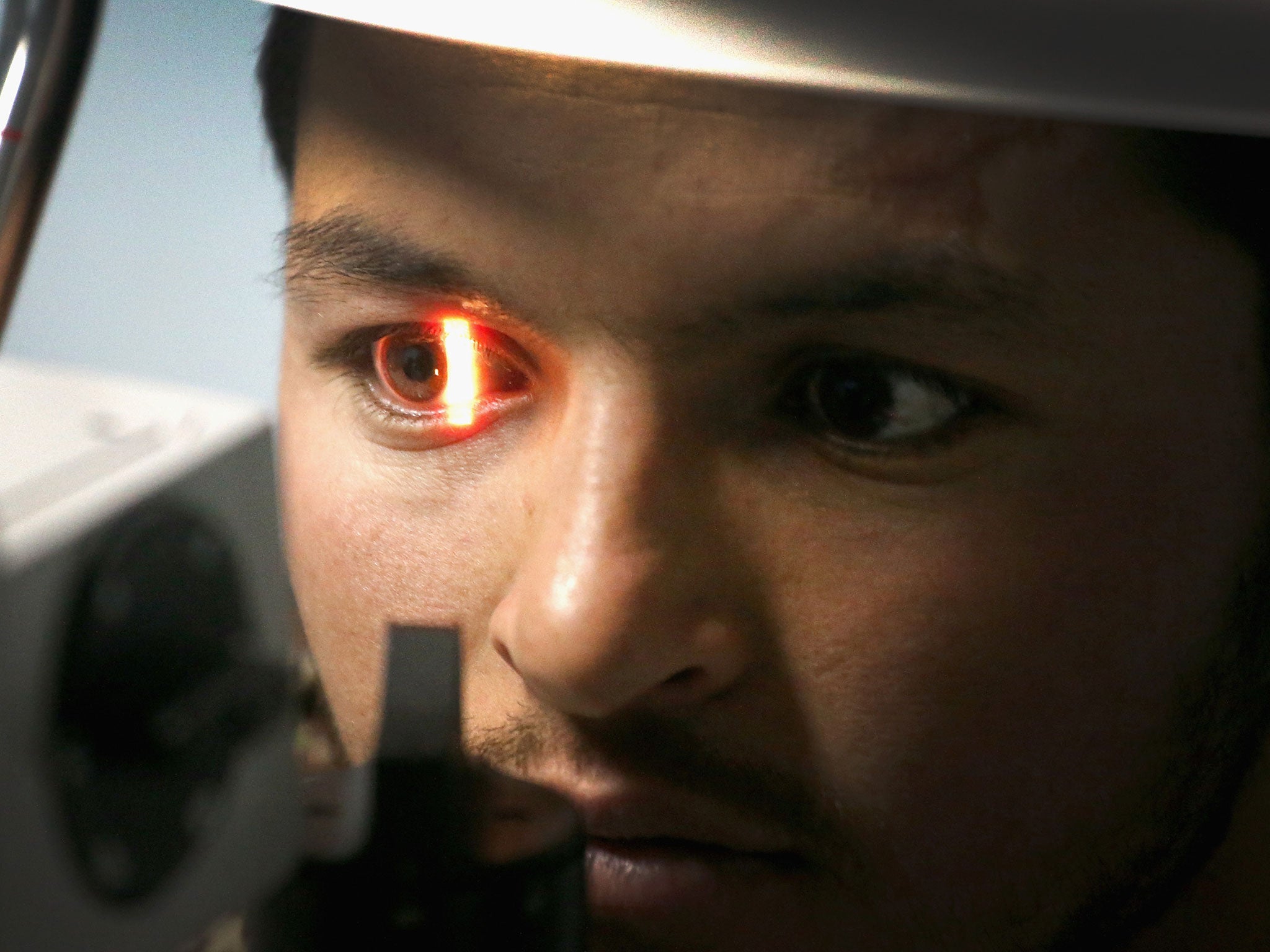English people with rare eye condition may be forced to move to Scotland to 'save their sight', says charity
The charity says it is considering legal action over NHS England’s decision not to recommended routine use of the drugs Humira and Remicade

Your support helps us to tell the story
From reproductive rights to climate change to Big Tech, The Independent is on the ground when the story is developing. Whether it's investigating the financials of Elon Musk's pro-Trump PAC or producing our latest documentary, 'The A Word', which shines a light on the American women fighting for reproductive rights, we know how important it is to parse out the facts from the messaging.
At such a critical moment in US history, we need reporters on the ground. Your donation allows us to keep sending journalists to speak to both sides of the story.
The Independent is trusted by Americans across the entire political spectrum. And unlike many other quality news outlets, we choose not to lock Americans out of our reporting and analysis with paywalls. We believe quality journalism should be available to everyone, paid for by those who can afford it.
Your support makes all the difference.English people living with a rare eye condition may be forced to move to Scotland or Wales to “save their sight”, the country’s leading charity for the blind has said, after the NHS refused to fund routine access to treatments.
The Royal National Institute of Blind People (RNIB) said it was considering legal action over NHS England’s decision not to recommended routine use of the drugs Humira and Remicade for patients with a severe form of the inflammatory eye condition, uveitis.
Both drugs are routinely available in Scotland and Wales and their use is standard practice in many other countries. A trial of Humira for one group of paediatric uveitis patients, taking place in the UK, was stopped early because overwhelming evidence of the drugs’ benefit meant it was deemed unethical to continue giving some children placebo.
However, NHS England concluded there was “not sufficient evidence” to recommend routine use.
Uveitis is one of the leading causes of sight loss in the UK, accounting for one in 10 Certification of Vision Impairment registrations. It can lead to loss of peripheral and central vision, or cause blurred or cloudy vision. Severe cases are rarer, but can lead to loss of sight.
Previously, some patients in England had been able to access Humira and Remicade through Individual Funding Requests (IFR) made by their specialists, but many have been unsuccessful, with patients describing the process as a postcode lottery.
After receiving a high number of IFRs, NHS England began reviewing the use of the drugs two years ago. Its policy document, published earlier this month has dismayed patients and campaigners.
Maria Dawson, the RNIB’s Eye Health Campaigns Officer said the decision was “totally unacceptable”.
“We have already heard from one patient who is considering a move to Scotland in a desperate bid to save her son’s sight,” she said. “There will be many more patients worried about the financial and emotional impact of this decision.”
Self-funding of the drugs, which belong to a group called anti-TNF treatments, costs between £8,000 and £10,000 a year. A spokesperson for NHS England, which has responsibility for assessing and commissioning specialist treatments, said that the decision had not been made on cost grounds.
Patients will still be able to apply for an IFR decision through their specialist, but the RIB said NHS England’s new stance means they are only likely to get the drugs if they have another serious health condition that could lead to them being considered a special case.
The Royal College of Ophthalmologists, which represents the UK’s leading eye doctors, said it was “deeply concerned” by the situation. A spokesperson said England was “now one of the few countries in the world that does not use anti-TNF treatments for uveitis.”
Nicola Davis, whose daughter Olivia, now 15, was diagnosed with severe refractory uveitis at the age of nine, said the family were “devastated” by the decision. Mrs Davis, who founded the charity Olivia’s Vision to support uveitis sufferers, said she had received numerous calls from worried parents.
Olivia, who is blind in one eye, began taking Humira two and a half years ago, after other drug treatments failed. Since taking the drug, which her parents have had to self-fund, she has been in remission.
Patients in England with severe uveitis are routinely treated with steroids or immunosuppressants. However, the RNIB said these were not suitable for all patients.
Two studies on the effectiveness of the drugs are expected to be published later this year, at which time it is understood NHS England may review its decision.
Join our commenting forum
Join thought-provoking conversations, follow other Independent readers and see their replies
Comments